Meta is Combating Financial Sextortion Scams from Nigeria
A Statement from Meta (Facebook/Instagram/WhatsApp)
Primary Category: News
Authors:
• SCARS Editorial Team – Society of Citizens Against Relationship Scams Inc.
• Portions by Meta Corporation
About This Article
Financial sextortion is a borderless crime increasingly perpetrated by cybercriminals known as Yahoo Boys, primarily operating out of Nigeria. Meta recently removed around 63,000 Instagram accounts and 7,200 Facebook assets linked to these scammers. This included a coordinated network of 2,500 Instagram accounts and various Facebook Groups that provided guidance on conducting scams.
Meta’s efforts, supported by enhanced detection systems and cooperation with law enforcement, aim to prevent these crimes and protect potential victims, including teens and minors. The company also supports training programs for law enforcement to better handle such crimes.
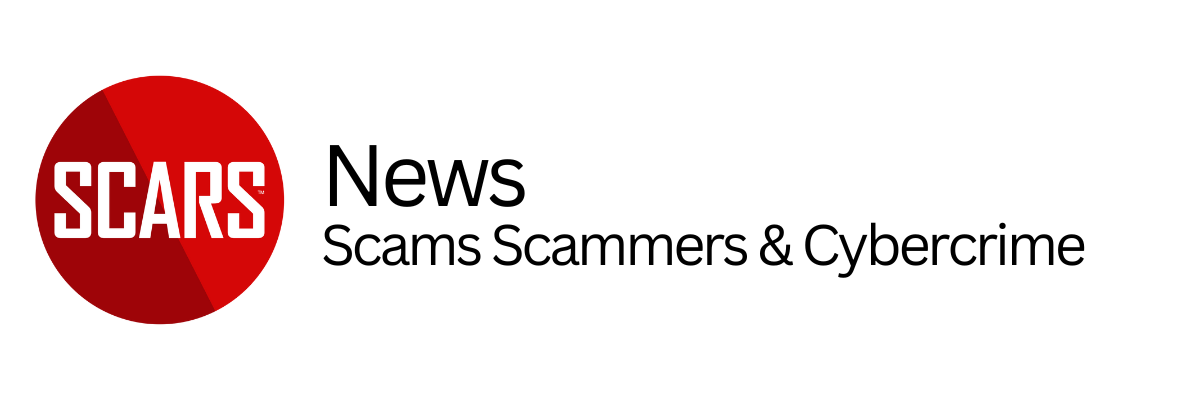
Meta is Combating Financial Sextortion Scams From Nigeria
The following is a statement from Meta Corporation about actions they are taking to reduce sextortion scams that target teens.
Takeaways
- Financial sextortion is a borderless crime, fueled in recent years by the increased activity of Yahoo Boys, loosely organized cybercriminals operating largely out of Nigeria that specialize in different types of scams.
- We’ve removed around 63,000 Instagram accounts in Nigeria attempting to target people with financial sextortion scams, including a coordinated network of around 2,500 accounts.
- We’ve also removed a set of Facebook accounts, Pages and Groups run by Yahoo Boys – banned under our Dangerous Organizations and Individuals policy – that were attempting to organize, recruit and train new scammers.
Financial sextortion is a horrific crime that can have devastating consequences. Our teams have deep experience in fighting this crime and work closely with experts to recognize the tactics scammers use, understand how they evolve and develop effective ways to help stop them. Like many crimes, financial sextortion crosses borders, and over recent years there’s been a growing trend of scammers — largely driven by cybercriminals known as Yahoo Boys — targeting people across the internet, both with these and other types of scams. We’ve banned Yahoo Boys under Meta’s Dangerous Organizations and Individuals policy — one of our strictest policies — which means we remove Yahoo Boys’ accounts engaged in this criminal activity whenever we become aware of them.
Following our recent Q1 2024 Adversarial Threat Report, today we are announcing the strategic network disruption of two sets of accounts in Nigeria that were affiliated with Yahoo Boys and were attempting to engage in financial sextortion scams.
First, we removed around 63,000 Instagram accounts in Nigeria that attempted to directly engage in financial sextortion scams. These included a smaller coordinated network of around 2,500 accounts that we were able to link to a group of around 20 individuals. They targeted primarily adult men in the US and used fake accounts to mask their identities.
We found the coordinated network of around 2,500 accounts through a combination of new technical signals we’ve developed to help identify sextorters and in-depth investigations by our expert teams. The majority of these accounts had already been detected and disabled by our enforcement systems, and this investigation allowed us to remove the remaining accounts and understand more about the techniques being used to improve our automated detection.
While our investigation showed that the majority of these scammers’ attempts were unsuccessful and mostly targeted adults, we did see some also attempt to target minors, and we’ve reported those accounts to the National Center for Missing and Exploited Children (NCMEC). Since these criminals don’t limit themselves to any one platform, we also share relevant information with other tech companies through the Tech Coalition’s Lantern program, so they can take action too.
Applying lessons learned from taking down terrorist groups and coordinated inauthentic behavior, we used our identification of this coordinated network to help us identify more accounts in Nigeria that were attempting to engage in similar sextortion scams, bringing the total to around 63,000 accounts removed.
Second, we removed around 7,200 assets, including 1,300 Facebook accounts, 200 Facebook Pages and 5,700 Facebook Groups, also based in Nigeria, that were providing tips for conducting scams. Their efforts included offering to sell scripts and guides to use when scamming people, and sharing links to collections of photos to use when populating fake accounts.
Since this disruption, our systems have been identifying and automatically blocking attempts from these groups to come back, and we continue to strengthen those systems to make them as effective as possible. We’ve also used the new tactics we observed to further improve our ability to detect accounts, Groups and Pages engaging in this activity.
While these investigations and disruptions are critical, they’re just one part of our approach. We continue to support law enforcement in investigating and prosecuting these crimes, including by responding to valid legal requests for information and by alerting them when we become aware of someone at risk of imminent harm, in accordance with our terms of service and applicable law. We also fund and support NCMEC and the International Justice Mission to run Project Boost, a program that trains law enforcement agencies around the world in processing and acting on NCMEC reports. We’ve conducted several training sessions so far, including in Nigeria and the Cote d’Ivoire, with our most recent session taking place just last month.
We also want to help people recognize and avoid these scams, while making it as difficult as possible for the criminals behind them to succeed. It’s why we default teens under 16 (under 18 in certain countries) into stricter message settings so they can’t be messaged by anyone — even other teens — they’re not connected to, and show Safety Notices encouraging them to be cautious.
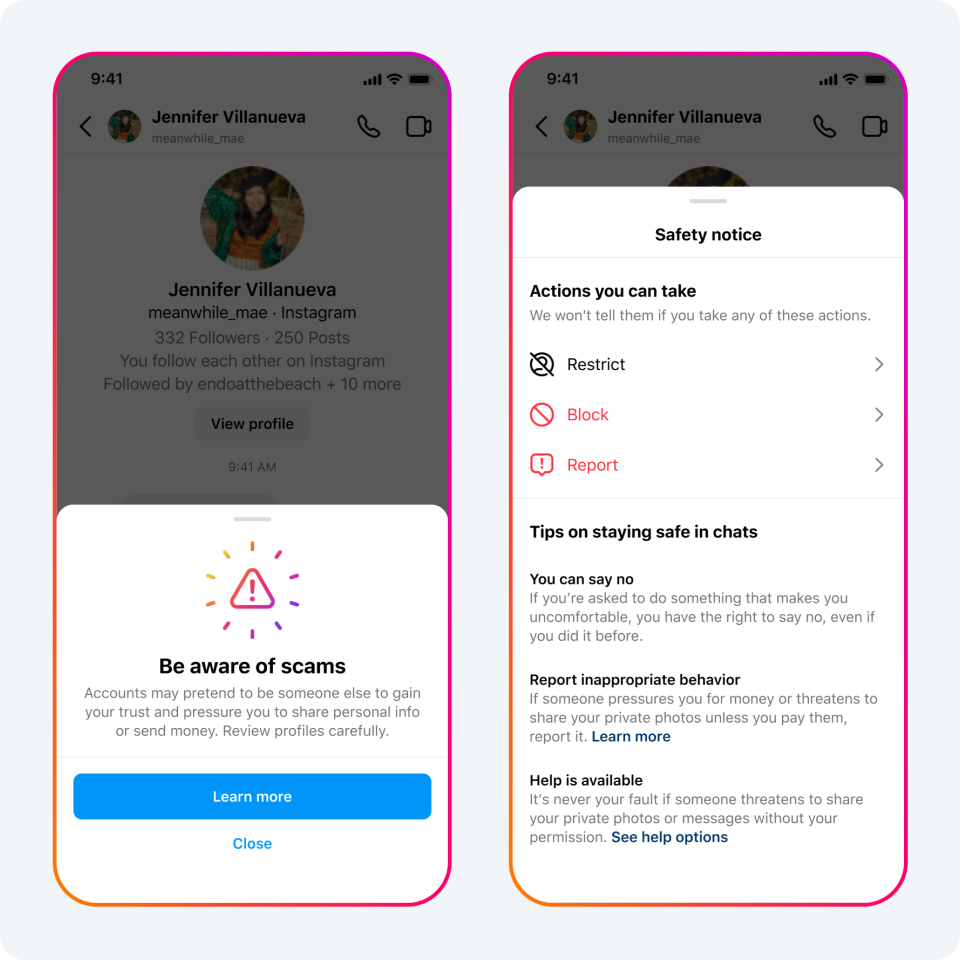
We also recently announced that we’ve developed new signals to identify accounts that are potentially engaging in sextortion, and are taking steps to help prevent these accounts from finding and interacting with teens. Finally, we’ve started testing our on-device nudity protection feature in Instagram DMs, which will blur images detected as containing nudity, encourage people to be cautious when sending sensitive images and direct people to safety tips and resources, including NCMEC’s Take It Down platform.
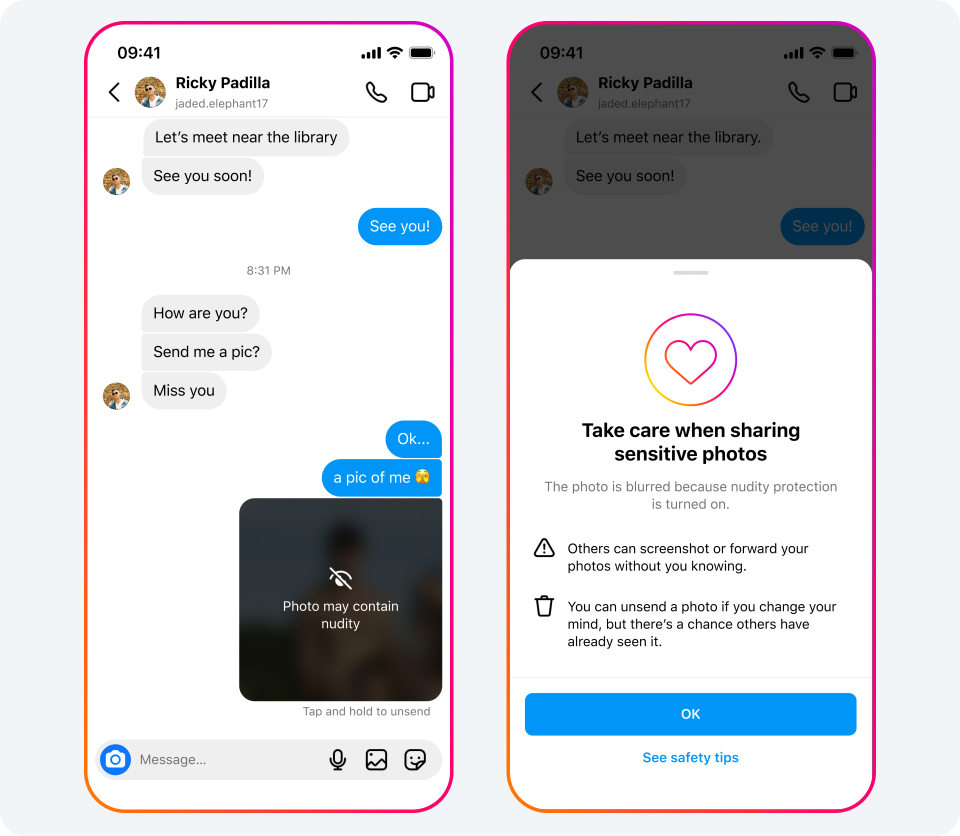
This is an adversarial space where criminals evolve to evade our ever-improving defenses. We will continue to focus on understanding how they operate so we can stay one step ahead, and will continue our vital cooperation with child safety experts, law enforcement and the tech industry to help disrupt these criminals across all the platforms they use.
Meta Management
-/ 30 /-
What do you think about this?
Please share your thoughts in a comment below!
-/ 30 /-
What do you think about this?
Please share your thoughts in a comment below!
SCARS LINKS: AgainstScams.org RomanceScamsNOW.com ContraEstafas.org ScammerPhotos.com Anyscam.com ScamsNOW.com
reporting.AgainstScams.org support.AgainstScams.org membership.AgainstScams.org donate.AgainstScams.org shop.AgainstScams.org
youtube.AgainstScams.org linkedin.AgainstScams.org facebook.AgainstScams.org
Important Information for New Scam Victims
- Please visit www.ScamVictimsSupport.org – a SCARS Website for New Scam Victims & Sextortion Victims.
- SCARS Institute now offers its free, safe, and private Scam Survivor’s Support Community at www.SCARScommunity.org – this is not on a social media platform, it is our own safe & secure platform created by the SCARS Institute especially for scam victims & survivors.
- SCARS Institute now offers a free recovery learning program at www.SCARSeducation.org.
- Please visit www.ScamPsychology.org – to more fully understand the psychological concepts involved in scams and scam victim recovery.
If you are looking for local trauma counselors, please visit counseling.AgainstScams.org
If you need to speak with someone now, you can dial 988 or find phone numbers for crisis hotlines all around the world here: www.opencounseling.com/suicide-hotlines
Statement About Victim Blaming
Some of our articles discuss various aspects of victims. This is both about better understanding victims (the science of victimology) and their behaviors and psychology. This helps us to educate victims/survivors about why these crimes happened and not to blame themselves, better develop recovery programs, and help victims avoid scams in the future. At times, this may sound like blaming the victim, but it does not blame scam victims; we are simply explaining the hows and whys of the experience victims have.
These articles, about the Psychology of Scams or Victim Psychology – meaning that all humans have psychological or cognitive characteristics in common that can either be exploited or work against us – help us all to understand the unique challenges victims face before, during, and after scams, fraud, or cybercrimes. These sometimes talk about some of the vulnerabilities the scammers exploit. Victims rarely have control of them or are even aware of them, until something like a scam happens, and then they can learn how their mind works and how to overcome these mechanisms.
Articles like these help victims and others understand these processes and how to help prevent them from being exploited again or to help them recover more easily by understanding their post-scam behaviors. Learn more about the Psychology of Scams at www.ScamPsychology.org
SCARS INSTITUTE RESOURCES:
If You Have Been Victimized By A Scam Or Cybercrime
♦ If you are a victim of scams, go to www.ScamVictimsSupport.org for real knowledge and help
♦ SCARS Institute now offers its free, safe, and private Scam Survivor’s Support Community at www.SCARScommunity.org/register – this is not on a social media platform, it is our own safe & secure platform created by the SCARS Institute especially for scam victims & survivors.
♦ Enroll in SCARS Scam Survivor’s School now at www.SCARSeducation.org
♦ To report criminals, visit https://reporting.AgainstScams.org – we will NEVER give your data to money recovery companies like some do!
♦ Follow us and find our podcasts, webinars, and helpful videos on YouTube: https://www.youtube.com/@RomancescamsNowcom
♦ Learn about the Psychology of Scams at www.ScamPsychology.org
♦ Dig deeper into the reality of scams, fraud, and cybercrime at www.ScamsNOW.com and www.RomanceScamsNOW.com
♦ Scam Survivor’s Stories: www.ScamSurvivorStories.org
♦ For Scam Victim Advocates visit www.ScamVictimsAdvocates.org
♦ See more scammer photos on www.ScammerPhotos.com
You can also find the SCARS Institute’s knowledge and information on Facebook, Instagram, X, LinkedIn, and TruthSocial
Psychology Disclaimer:
All articles about psychology and the human brain on this website are for information & education only
The information provided in this and other SCARS articles are intended for educational and self-help purposes only and should not be construed as a substitute for professional therapy or counseling.
Note about Mindfulness: Mindfulness practices have the potential to create psychological distress for some individuals. Please consult a mental health professional or experienced meditation instructor for guidance should you encounter difficulties.
While any self-help techniques outlined herein may be beneficial for scam victims seeking to recover from their experience and move towards recovery, it is important to consult with a qualified mental health professional before initiating any course of action. Each individual’s experience and needs are unique, and what works for one person may not be suitable for another.
Additionally, any approach may not be appropriate for individuals with certain pre-existing mental health conditions or trauma histories. It is advisable to seek guidance from a licensed therapist or counselor who can provide personalized support, guidance, and treatment tailored to your specific needs.
If you are experiencing significant distress or emotional difficulties related to a scam or other traumatic event, please consult your doctor or mental health provider for appropriate care and support.
Also read our SCARS Institute Statement about Professional Care for Scam Victims – click here
If you are in crisis, feeling desperate, or in despair, please call 988 or your local crisis hotline – international numbers here.
More ScamsNOW.com Articles
A Question of Trust
At the SCARS Institute, we invite you to do your own research on the topics we speak about and publish. Our team investigates the subject being discussed, especially when it comes to understanding the scam victims-survivors’ experience. You can do Google searches, but in many cases, you will have to wade through scientific papers and studies. However, remember that biases and perspectives matter and influence the outcome. Regardless, we encourage you to explore these topics as thoroughly as you can for your own awareness.









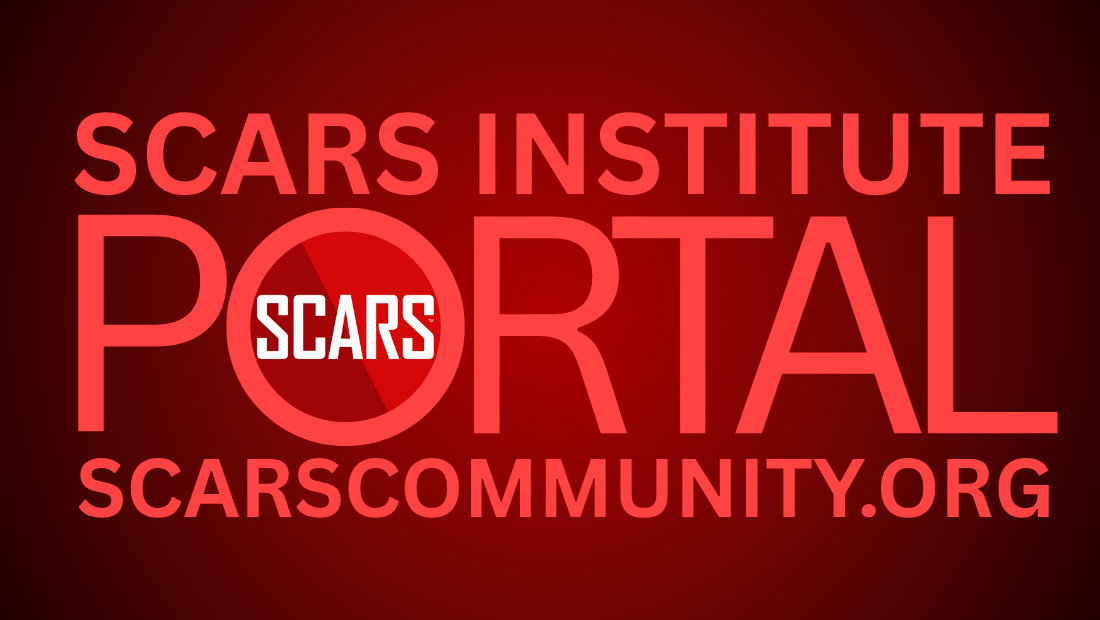

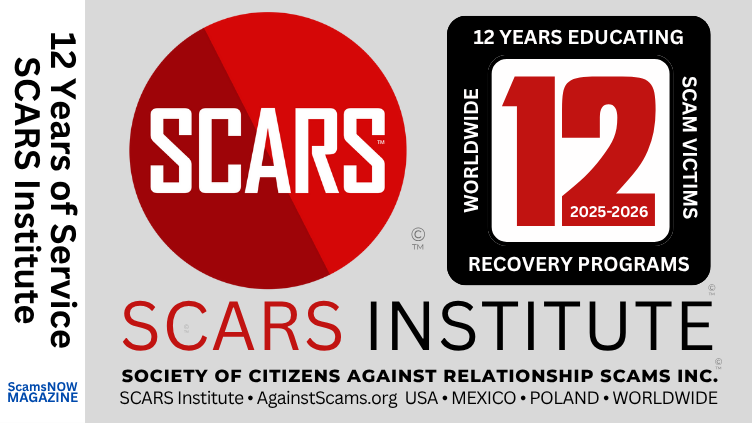



![NavyLogo@4x-81[1] Meta Combating Financial Sextortion Scams From Nigeria - 2024](https://scamsnow.com/wp-content/uploads/2025/04/NavyLogo@4x-811.png)









![scars-institute[1] Meta Combating Financial Sextortion Scams From Nigeria - 2024](https://scamsnow.com/wp-content/uploads/2025/04/scars-institute1.png)

![niprc1.png1_-150×1501-1[1] Meta Combating Financial Sextortion Scams From Nigeria - 2024](https://scamsnow.com/wp-content/uploads/2025/04/niprc1.png1_-150x1501-11.webp)